I wrote this article in Japanese and translated it into English using ChatGPT. I also used ChatGPT to create the English article title. I did my best to correct any translation mistakes, but please let me know if you find any errors. By the way, I did not use ChatGPT when writing the Japanese article. The entire article was written from scratch by me, Saikawa Goto.
Introduction
Movies and books covered in this article

Three takeaways from this article
- The film starts with the declaration “This is a true story” and is filled with the determination of the production team.
- I was surprised to realize that I knew absolutely nothing about the content of this movie, which is based on a globally best-selling book.
- The incredible story reveals the “truth” that was supposed to be buried in darkness, as two opposing individuals persist in their “beliefs”.
Self-introduction article


Published Kindle books(Free on Kindle Unlimited)
“The genius Einstein: An easy-to-understand book about interesting science advances that is not too simple based on his life and discoveries: Theory of Relativity, Cosmology and Quantum Theory”
“Why is “lack of imagination” called “communication skills”?: Japanese-specific”negative” communication”
The quotes used in this article are based on notes taken at the movie theater from movies in Japanese and are not direct quotes from the foreign language original movies, even if they exist.
No Way this is a True Story….. What is ‘American ‘Justice” Suggested by the Movie ‘The Mauritanian’?
This is an incredible movie. I was surprised to learn that this is based on a “true story.”
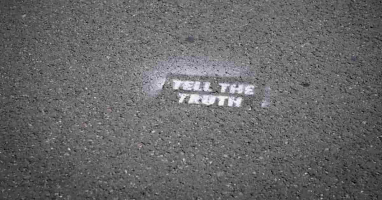
Of course, I am aware that various nations around the world are taking actions that cannot be considered ethically correct for the sake of their own interests and safety. We must weigh “national interests” against “ethics” to determine how much we should tolerate, but in many cases, I think there is a sense that “some sacrifice is inevitable to protect national interests.”
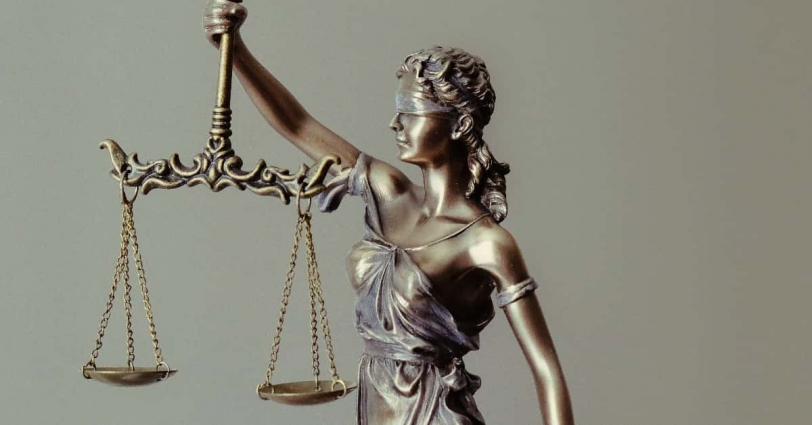
However, I also have feelings that the United States is supposed to be the “country of justice”. While there may be differences in values as to what constitutes “justice,” I do not want them to move in the direction of feeling that “that’s something I definitely wouldn’t want to call ‘justice’.” I hope that all countries in the world will be like that, but there is a part of me that strongly feels that way about the country of the United States.

Therefore, it is just disappointing that what is depicted in this movie actually happens.
Let me explain this article a bit. Normally, I try to avoid spoilers and write my thoughts according to “my own spoiler standards”. However, in this article, I want to touch on “a certain fact” that is revealed in the second half of the movie. If I were to follow “my own spoiler standards”, I shouldn’t write about it. However, in “The Mauritanian,” what is important is not just the “fact itself,” but the “severity of the fact.” I will touch on the “fact itself,” but not the “severity of the fact.” I really want you to watch the movie and feel it for yourself.
Under the instruction of Secretary of Defense Rumsfeld, the United States has been “unjustly” detaining and “torturing” a person as the “mastermind” behind 9/11. This is the “fact itself” that is revealed in the movie. At the end of the movie, the following statement was made:
The CIA, the Department of Defense, and any agency did not acknowledge the fact of torture and have not apologized.
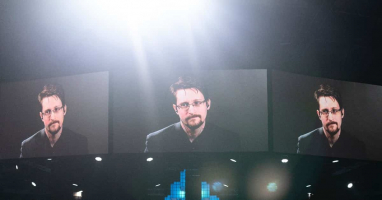
Declaration at the Beginning, Showing the Determination to “Only Depict the Facts”
Before the main story begins, the following is displayed on the screen:
This is a true story.
I often watch movies based on true stories, but usually in such works, the following expression is used:
a story based on a fact

I don’t think I’ve ever seen the expression “This is a true story” in foreign movies. I may not fully understand the nuances of English, but the difference seems obvious. If it’s “a story based on a fact,” we can think of it as “mixed with fiction.” There are various reasons why fiction is added, such as to obscure personal information about the model person or to supplement parts that could not be determined even after conducting as much research as possible. There must be reasons other than “to make the story interesting.”

Perhaps there is also a reason like this. When someone who has seen the movie points out, “This part is different from the fact,” there is a benefit of being able to get through it by saying, “It’s just a ‘story based on a fact’.” Especially in the United States, a country with a lot of lawsuits, there is a possibility that complaints from the person who served as the model or related parties could develop into a major problem when making a work based on a true story. Therefore, even if everything is actually based on a true story, I imagine that there are cases where it is labeled as “a story based on a fact.”
Now, when you think about it that way, you can understand the weight of the declaration “This is a true story.” This is a declaration that “the story is constructed only with facts,” and can be said to be a “challenge to the state” in a sense. As mentioned earlier, the United States does not admit to the fact of torture. In the midst of such a situation, a movie that accuses “torture was actually performed” is produced with the declaration “This is a true story.” It can be said that it is quite a resolve.
And because of this declaration, the audience can understand that “everything depicted is true,” and they will be more strongly shocked. It’s a movie that is full of a sense of mission to “convey the truth.”
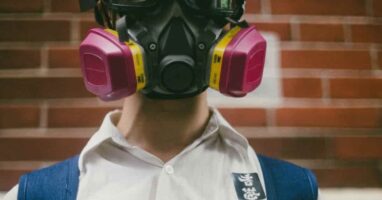
According to the official website, it was actor Benedict Cumberbatch who was eager to produce “The Mauritanian.” Production was decided by his film production company, and initially, he intended to focus on being a producer. However, the script was so excellent that he decided to also act in it.
In addition, it is written that film director Kevin Macdonald is a person with a reputation for documentary films. With the enthusiasm of the actor who was eager to produce it and the fiction produced by a documentary film professional, you can feel the “determination” or something similar that was put into this movie.
Movie Synopsis
Although the movie depicts a complex situation involving various factors, the structure of the story is very simple. It portrays a conflict between “a person who tries to save” and “a person who tries to corner,” and the struggles of both reveal a terrifying truth.
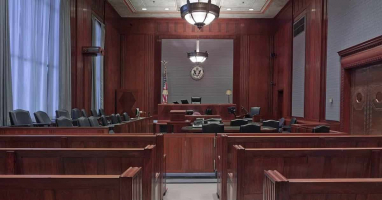
Salahi, who is from Mauritania in Africa, is being held at the Guantánamo detention camp in Cuba. He has been detained for years without charge, suspected of being “one of the masterminds of the 9/11 attacks.” Information about Salahi is highly classified, and few people even know he is in Cuba. He is living in a hellish existence with no one to turn to and no changes in sight.

Nancy, a human rights lawyer, learned of the existence of Mauritanians detained at the Guantánamo detention camp one day. She immediately traveled to Cuba and became Salahi’s lawyer.
Her stance is clear: “Even if Salahi is one of the masterminds, he has the right to a fair defense.” That’s certainly true. Being held without charge is nothing but “arbitrary detention.” She applies for a “habeas corpus” and tries to rescue Salahi from the hellish The Guantánamo detention camp.

On the other hand, Lieutenant Colonel Stuart, who belonged to the US military, was ordered by his superior to prosecute Salahi. Stuart was a close friend of the pilot who was on board United Airlines Flight 175, which was hijacked on 9/11, so he was motivated by the order to “make Salahi the first person to be executed.”
However, when Stuart began preparing for the prosecution, he realized that there were many suspicious points. First of all, the reports that remain at the Guantánamo Bay Naval Base are full of contradictions, and the dates have been deleted. This makes it impossible to establish a trial. After investigating various things, he found out that there was a fact that a “MER (memorandum for record)” that can be said to be a memo before being summarized in the form of a report, existed. However, when he inquired about the “MFR,” he was turned down because Stuart did not have access rights. Something was wrong with this…
Around Salahi, a person who “tries to save him” and a person who “tries to corner him” continue to struggle based on their beliefs. And in the end, they will expose America’s “terrible darkness”…

I was Surprised to Learn that I didn’t Know Anything about the Facts Depicted in the Movie
This movie is based on a book that became a worldwide bestseller. It’s “The Guantanamo Diary” written by Salahi, which was sent to Nancy as a reference material and published in the US before the trial began. It was in 2015. The fact that it was censored and published with some parts blacked out made it a topic of discussion, and it became a bestseller all over the world.
I had been working at some bookstores for a long time, but I had no idea about the existence of this book. If it was such a popular book, at least the bookstore staff should know about it. I thought it was strange and when I searched, I found out that it was published in Japan to coincide with the release of this movie. The movie was released in Japan in 2021. In other words, the global bestseller went untranslated for six years in Japan.

This fact feels very embarrassing. It’s because it must have been decided that it wouldn’t sell even if it was published, which is why it was not translated into Japanese. The fact that a book that has become a worldwide bestseller is judged as “not selling in Japan” highlights how little interest Japanese people have in social issues.

Or, I didn’t also know the story that there had been protests from the international community and human rights groups about the Guantánamo detention camp where Salahi was detained. Watching the movie, it seems natural to criticize it. It’s because they had been detaining people suspected of being al-Qaeda or terrorists for a long time, ignoring judicial procedures and conducting interrogation and torture. The Obama administration announced its closure in 2009, but it seems that it has not been closed to this day. Until watching this movie, I had no memory of touching such news.
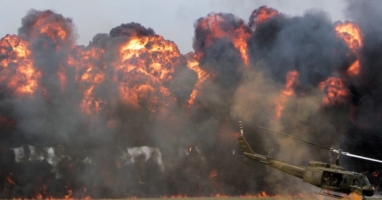
Without someone reporting it, we wouldn’t know what’s happening in the world. Of course, we also have to actively seek information ourselves. I don’t read newspapers or look at online media very much. I just have the TV on as background noise while I work, and try to watch news programs as much as possible. If I had actively sought out information, I might have noticed that “Salahi’s memoir has become a bestseller around the world” and “The abuses at the Guantánamo detention camp are being criticized.” That’s true.
But while watching the movie, I also had this suspicion. Could it be that Japan’s mass media, out of deference to the United States, are not reporting information that is inconvenient for the United States?
Regarding this point, just like with the book publishing I talked about earlier, it may also be that it’s not covered simply because “even if reported, it won’t garner public interest,” in which case it would be our problem rather than the media’s.

In any case, we need to be more aware that “we don’t know anything about the world.” Of course, we cannot know everything about the world. However, we need to be more aware that we cannot know anything without an active will.
Stuart’s Struggle to Resist with Conviction in “America’s Concept of ‘Justice'”
The story takes place around the time when memories of the 9/11 attacks are still fresh. That’s probably why the people on the US military side depicted in the movie seem to be operating on the judgment criterion that “anything is allowed to prevent another 9/11”. Of course, such a judgment should not be acceptable. However, the 9/11 attacks were an unprecedented event and must have been an immense shock even for those in charge of national defense. If I consider it as a binary choice between good and bad, it overwhelmingly feels “bad”. However, I also think that they might have been trapped in a myopic way of thinking that has no choice but to have such “bad” judgment criteria.

Stuart, who was chosen for this situation, had a proper sense of “judging based on the law”. As his superior, it was probably a miscalculation. The boss’s plan was probably “Since my best friend was killed in the terrorist attack, do whatever it takes to push Salahi to the death penalty.” However, Stuart prioritized justice and conscience over his own emotions and the interests of the country of America. He believed that he should prosecute according to the correct procedures.
No matter how much insufficient evidence there is, if there is not a single conclusive evidence, then it is a release of innocence.

Unfortunately, in America at that time, he was stamped as a “traitor” for having such a “proper sense.”
Many people involved with Salahi think that “it doesn’t matter whether Salahi is actually one of the ringleaders.” They just think that some visible “results” are necessary.

You would feel it from the scene where a person close in Stuart with the words,
Someone must pay for it.
When they say “someone,” it’s clear that they don’t care who it is. In any case, as Americans, they want to announce the fact that they “executed the mastermind of 9/11,” even if it’s not the actual mastermind.
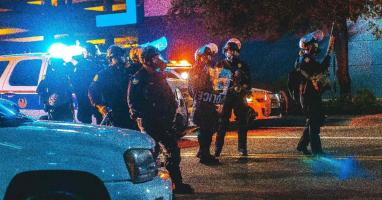
Stuart replied,
But that doesn’t mean anyone will do.
Which was very reasonable. Stuart stubbornly held on to his belief that only the person who truly deserved to be punished should be tried and judged properly. Later, Stuart left the U.S. military according to his conscience, but in a later scene, he spoke like this:
If someone is convicted in a trial, I want to execute the death penalty myself.

He naturally hates the people who executed the 9/11 terrorist attacks. It’s natural since his best friend was killed. His anger may be stronger than that of other US military personnel who spoke of “executing Salahi.” However, he also believes it’s wrong for an unrelated person to be punished. This may seem like a very obvious feeling, but it was not tolerated at all in America immediately after 9/11. I also felt that I wanted to live without being swallowed up by such a societal trend, and I hope that people like Stuart will be properly valued in society.

Nancy’s Enigmatic Stance
Stuart’s stance can be said to be very simple and easy to understand, but it is difficult to say that lawyer Nancy’s stance is clear.
When Nancy came to the Guantánamo detention camp and became Salahi’s lawyer, Salahi asked, “Why are you defending someone like me?” It’s only natural that he would want to ask that. After all, Salahi is considered “one of the masterminds of the 9/11 terrorist attacks” by the government. It’s a case that most people would want to stay away from. Here, Nancy says,
Everyone has the right to receive legal defense.
That’s certainly true. However, Teri, who visited Salahi with Nancy, had doubts. Teri was a junior at the law firm and was initially supposed to serve as an interpreter, but Salahi had learned English while in detention, so there was no need for her to be involved as an interpreter. However, Teri continued to be involved in Salahi’s case with Nancy.

Teri, who also works as a lawyer, asked Nancy a question like this:
Why don’t you tell him that you believe in his innocence?
Nancy’s stance was also questioned by Teri, who worked in the same profession. When Teri called Salahi’s mother using the phone number he gave them during their first meeting, she told Nancy about the conversation. Later, Nancy asked Teri, “Why do you think he gave his mother’s phone number?” Teri replied, “To tell her that he is innocent?” but Nancy had a different idea. She said it was “to let us hear the voice of his mother who claims her son is innocent.”
In this way, Nancy does not mention whether Salahi committed the crime or not. There are even moments where she clearly says this to Teri:
We are only proving the injustice of his detention. Sympathy is not necessary.
Nancy is focused solely on continuing to argue that “Salahi is being detained unfairly, and it is against the law.”


However, it is not as if she lacks emotion.
This is a scene where Nancy is being interviewed by a newspaper reporter. The reporter asks, “You have been called a ‘supporter of terrorism,’ but…” People in society have already decided that Salahi is the mastermind of terrorism, and they are also criticizing Nancy, who is defending Salahi.

In response, Nancy answers like this and laughs fearlessly.
A lawyer defending a rapist is not called a rapist, and a lawyer defending a murderer is not called a murderer. Then why is a lawyer defending a terrorist called a “supporter of terrorism?”
In addition, although I don’t touch on the specific situation, there is a scene where Nancy speaks to Teri in a strong tone and orders her to leave the case, saying,
You can’t win by defending while harboring suspicions. Get out of here.
Nancy’s words and actions are not easy to understand simply, unlike Stuart’s. However, it can be said that she generally has the same stance as Stuart’s. In other words, “the law is everything.” Society functions normally only when the law is exercised correctly. No matter how peculiar the situation may be, it is not permissible to ignore the “law.” And that is why she is devoted to upholding the “law,” ignoring societal trends and criticism.

Therefore, Nancy’s words to Salahi,
I respect you.
I don’t want to leave you alone.
were touching because it felt like she consciously stepped outside of the realm of “law”. I also hope that people like Nancy will be properly evaluated by society.

Conclusion

Power can run wild in any way. This is not just an American issue. In Japan, there are many cases where individual rights have been trampled by the tyranny of state power. It’s not someone else’s problem.

Salahi entrusts everything to Nancy, who does not compromise on the axis of “compliance with the law.” Thanks to Nancy’s struggles, Salahi’s trial finally took place. At the beginning of the trial, Salahi spoke to the people in the courtroom in his own words, remotely from the Guantánamo detention camp. His words were quite moving.
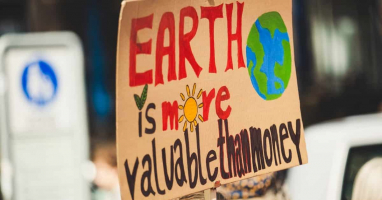
Impressive was the statement as follow.
“Freedom” and “forgiveness” are the same word in Arabic.
It shows Salahi’s integrity. It is also not easy to behave like Stuart or Nancy, but it is even more striking that Salahi, who has gone through such an ordeal, can say such things in that situation.
I believe that the law leads this trial, so I will accept whatever judgment you give.
It’s an incredible movie that depicts an incredible “reality.”

Published Kindle books(Free on Kindle Unlimited)
“The genius Einstein: An easy-to-understand book about interesting science advances that is not too simple based on his life and discoveries: Theory of Relativity, Cosmology and Quantum Theory”
“Why is “lack of imagination” called “communication skills”?: Japanese-specific”negative” communication”

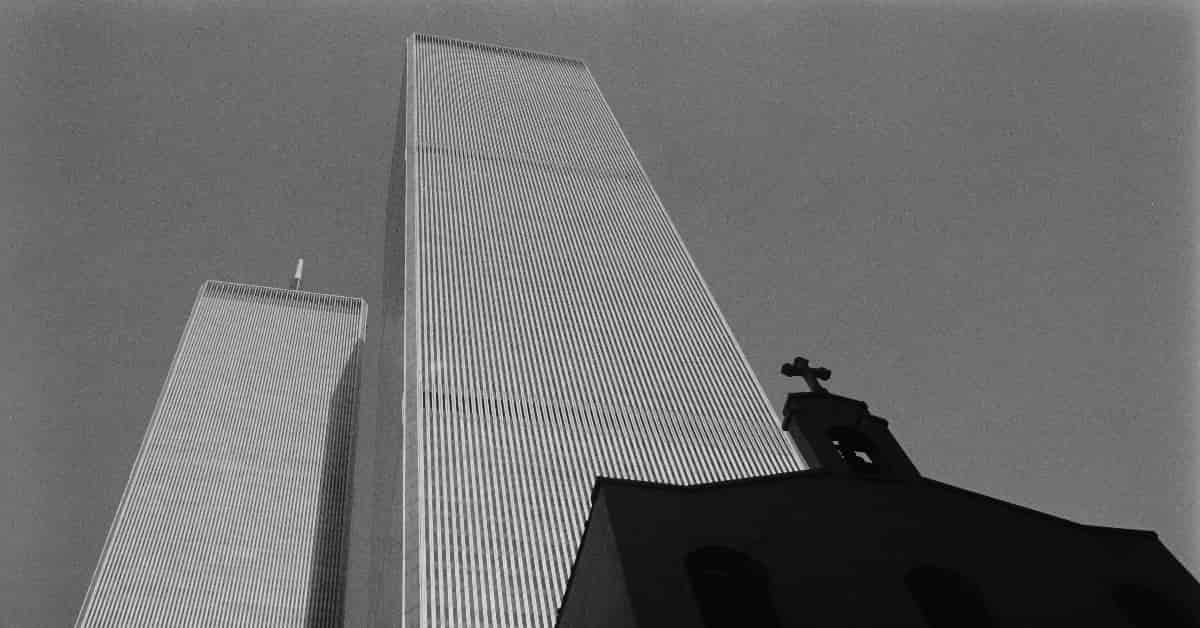





コメント